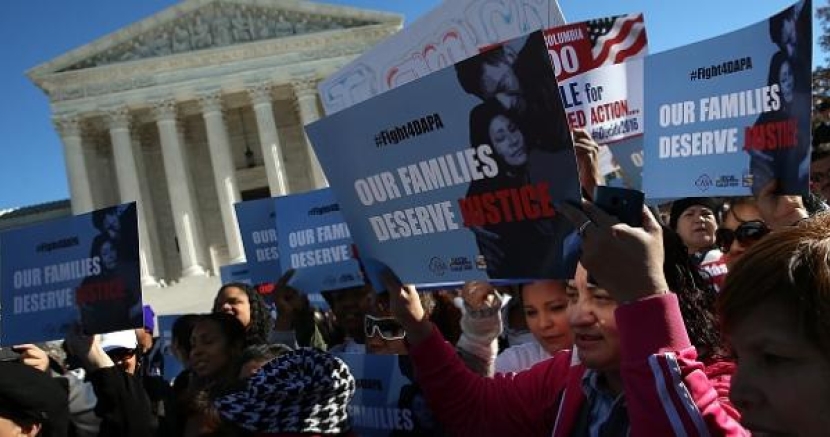The U.S. Supreme Court announced it will take up the case on President Obama's executive order on immigration this spring, with a ruling expected in June of 2016. The court's ruling will determine the fate and future of five million undocumented immigrants, once again underscoring why courts matter.
The order under review was announced by President Obama in November of 2014. His order created DAPA (Deferred Deferred Action for Parents of Americans and Lawful Permanent Residents), a program that removes the threat of deportation for parents of children living in the United States legally. With his order, the President has stated he is trying to ensure that families were kept together - and to take whatever action possible, since Republicans in Congress have blocked immigration reform for years.
- Do states have a right to sue at all? Some court observers have said states didn't allow time to demonstrate injury before the order was blocked, and therefore have no basis for any lawsuit.
- Does the order violate the President's duty to "take care" that laws passed by Congress are faithfully executed?
- Is the policy "arbitrary" and simply beyond the scope of presidential powers?
- Is the policy invalid because public input was not collected before it was implemented?
In addition to the key legal questions, there are a number of important pieces of context to keep in mind:
- Rhetoric from the GOP that President Obama's actions will make our country less safe ignores that most immigrants have been in America a very long time. According to the Pew Research Center, 85% of unauthorized immigrants have been in the United States for five years or more.
- The President's actions on immigration would create tens of thousands of jobs and generate $124 billion worth of increased income for all Americans.
- Both President Ronald Reagan and George W. Bush acted unilaterally on immigration during their administrations.
The Supreme Court is expected to take up the case in April, with a ruling expected in June.
We'll keep a close eye on this case in the weeks ahead, as we look forward to what will be a blockbuster Supreme Court term in the summer of 2016.
DONATE
Your donation supports our media and helps us keep it free of ads and paywalls.









